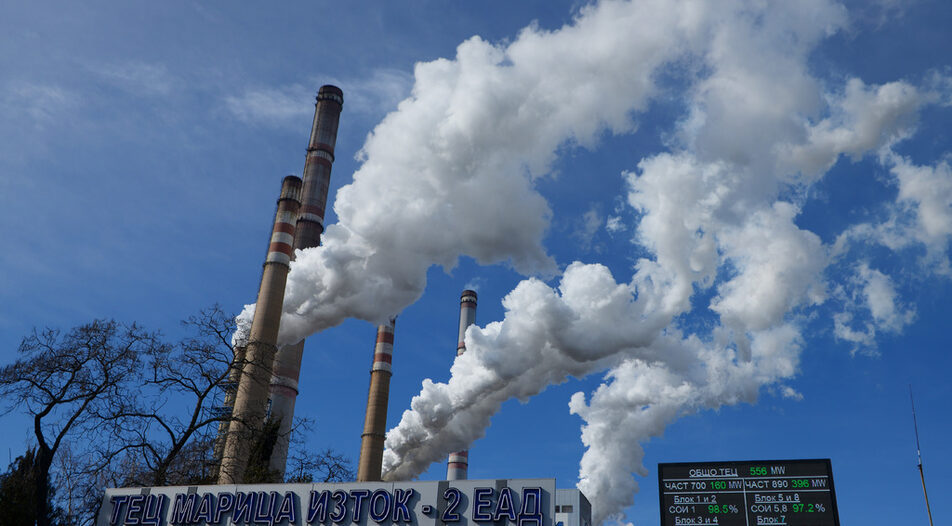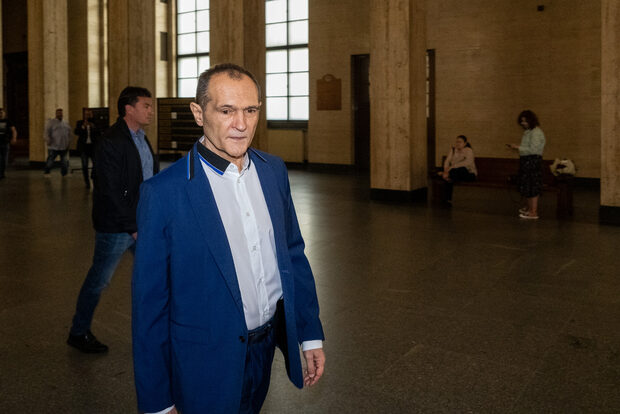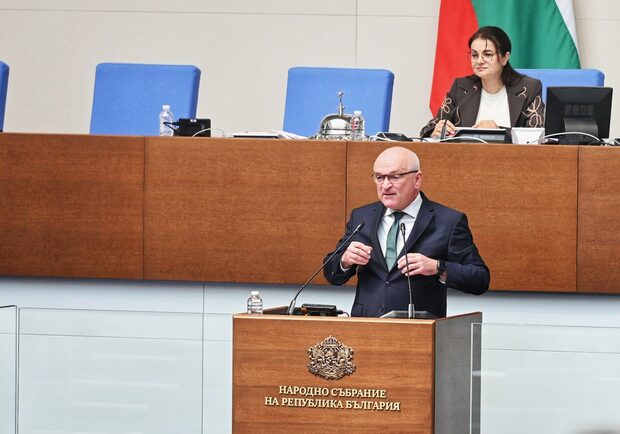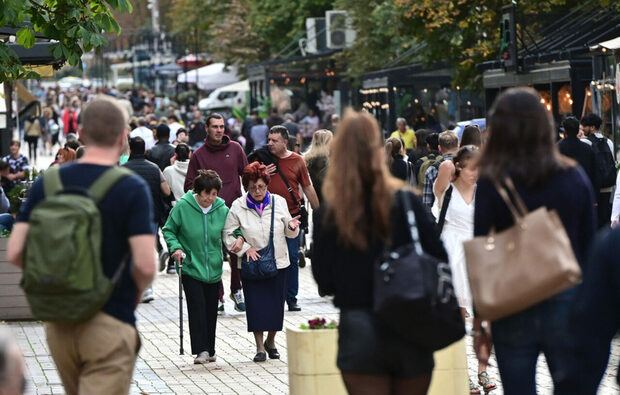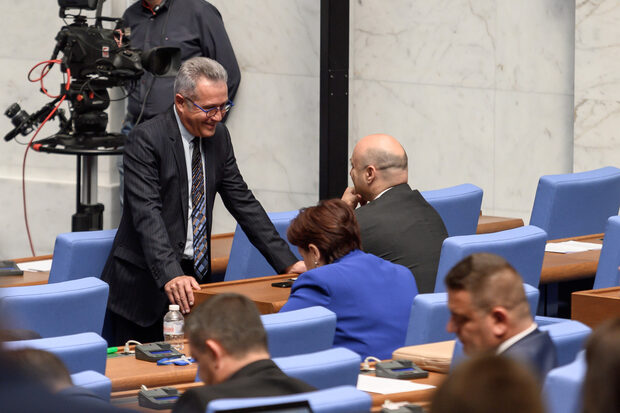Poland is 70% dependent on coal. It's the most coal-dependent country in the EU. Yet even Poland managed to agree on a date, beyond which, coal will become obsolete.
It's not exactly an imminent date - 2049. Just a year shy of the Paris accord deadlines. It's not a firm date either - it might shift a bit forward, or backward, depending. But it is a deadline nonetheless, a shared goal, a commitment.
Bulgaria doesn't have that. In the middle of the country, there is a glaring gap visible from space that marks the biggest open mine - Maritza Iztok. Next to it, stands the coal plant by the same name, which pollutes the skies above Stara Zagora and delivers hugely expensive electricity. It's so expensive that people would revolt if the price reflected the real value. But it doesn't - the state subsidized it to the magnitude of over a 1 billion leva last year.
"You have an expensive, outdated, polluting plant and mine and you need to close them," says the European Commission. "Here is some money we can spend on retraining, reforming, restructuring."
Nope, says Bulgaria. We know we need to close it, but we won't say when. Neither will we agree to mitigate the damage. Neither the previous, nor the caretaker government wanted to take the decision on when to shut Maritza Iztok complex down. We've reached a new level of absurdity - it makes more sense at this point to just stop it working and pay 115 million leva in salaries, rather than pay another 100 million on top for its inefficient production.
So this hostage-like situation will continue at least until the new post-election government decides to do something. This is, however, not an easy solution: even if we DO have a government, it will have plenty on its plate.
Yet the EC has one more lever it can use to get what it wants: the new Recovery and Resilience plan which is due to deliver 6 bln. euro to the economy in the next 4 years, is not going to be approved without a due date for Maritza Iztok closure. That might expedite matters. Yet for now, we remain hostages to political cowardice and lack of vision.
1. Politics this week
The Blagoevgrad premonition
An early mayoral vote in Blagoevgrad on Sunday was considered a dress rehearsal for next weekend's early national elections. While parallels between the two fundamentally different votes should be drawn very carefully, three things are notable:
- Lower turnout is to be expected. In Blagoevgrad, only 28 percent of eligible voters took to the polls, down from 58 percent in 2019. This can be attributed to the fact that the new mayor will not complete a full mandate, but also to the summer holidays, and the heat wave of recent weeks.
- Machine voting worked out just fine. Even though most voters who went to the polls were elderly, there was little recorded trouble with the full machine voting.
- Last, but not least - Roma sections, often associated with vote buying by experts, recorded very low turnout. If this repeats on 11 July across the board, it might mean that machine voting had indeed limited electoral manipulations by the big parties.
Also, the GERB candidate in town did not qualify for the second round of elections. Instead, the candidate of Slavi Trifonov's There is such a people (TISP) party leads the race. The local political context matters, but it is important to note that the TISP candidate, a little-known local councilor from a smaller party in the past, rose up to collect over a third of the vote - simply because he is now associated with the new "winner".
The debate about the debate
At a national level, the political clash of ideas is just as non-existent as it was a week ago. If anything changed, it is that ex-Prime Minister Boyko Borissov - who hasn't faced a journalist in an interview for over two years, or a political opponent EVER in his career - decided to challenge his main opponent, Slavi Trifonov, to a debate.
The response? "Americans do not negotiate with terrorists; neither do we," Mr Trifonov's acolyte Toshko Yordanov said.
Old friendships easily forgotten
The circus continued when exiled gambling tycoon Vassil Bozhkov joined the choir, asking Mr Trifonov to join him in a discussion, recalling a meeting the two allegedly had back when the former was still a respected businessman and not an outcast oligarch.
Mr Bozhkov was not the only one to recall his friendship with the showman, though. Mr Borissov also bemoaned the good old days when the two attended each other's birthdays, went to restaurants and cinema together and even visited Mr Trifonov's own village - Uchindol. "When I came to your home, was I a terrorist?" the GERB leader lamented.
The takeaway? Next week Bulgarian voters will be able to choose from a coterie of self-centered ex-friends who have little to say about actually governing the country.
MRF also abandoned Peevski
If there is one person who can tell you all about broken friendships in the last couple of weeks, it must be former media mogul Delyan Peevski. After several of his ex-business patterns and even his own mother distanced themselves from him due to his blacklisting under the US "Magnitsky Act," this week his own party fobbed him off. "Mr Peevski is my friend and one of the closest people to the MRF since 2008, but he was part of the civic quota in Parliament, he was never an MRF member," the leader of the ethnic party Mustafa Karadaya told MRF's Haskovo youth movement.
Bulgarian railways between delays and disasters
Everyone who has had the chance - or, rather, misfortune, to travel on a Bulgarian train is familiar with the poor condition of the Bulgarian State Railways (BDZ). The caretaker government did what it does best in an attempt to tackle its problems - it fired the bosses. On Tuesday, Minister of Transport Georgi Todorov announced he is dismissing BDZ's CEO and Board Director for allowing "71,333 minutes of delays of 4710 passenger trains since the start of the year", as well as for their inability to provide quality and comfort for passengers.
On the other hand, BDZ can be relied on to provide regular adrenaline rushes for its users. On Wednesday, news broke out that a head-on collision between two passenger trains at Karlovo station was prevented only by the quick reaction of engine driver Stanimir Stoyanov. The station manager apparently did not notice that one train stopped for repairs and allowed Mr Stoyanov's carriage to go on the same line
Bulgaria's Covid-19 failure - now described in an official document
Finally, on Thursday the National Health Analysis Centre published its report on the management of the Covid-19 crisis by the Bulgarian authorities in the past 15 months. The document, requested two weeks ago by caretaker Health Minister Stoycho Katsarov, points out the obvious - the pandemic response was based on political and not medical considerations, which led to Bulgaria heading both European and global rankings for per capita deaths caused by the disease. According to the conclusions of the report, life expectancy has dropped 1,5 years since the start of the pandemic and Bulgaria was the third worst hit EU country in terms of premature deaths, which was likely a product of the poor overall health status of Bulgarians and the mismanaged, poorly organized healthcare system.
2. Economy
The roadmap for euro adoption is ready
On Wednesday, the Coordination Council for the preparation for eurozone membership adopted a draft National Plan for the Introduction of the Euro in Bulgaria. Preparations for Bulgaria's accession to the euro area are scheduled for January 1, 2024. The conversion will be done by applying the current fixed exchange rate - 1.95583 levs per euro. The introduction of the euro is planned without a transitional period. Very little details were given as the full draft hasn't been uploaded yet - it will be up for public debate before its submission for consideration by the Council of Ministers.
The saga at BDB continues
The second attempt to register the new members of the Supervisory and Management Boards of the Bulgarian Development Bank (already approved by the BNB) was stonewalled once again in court. Thus, the Ministry of Economy, which owns 100% of the bank, will have to continue its near two-month long campaign to gain information on the large loans the BDB has handed out over the years.
Gov't takes back half a billion levs supposedly meant for Hemus motorway
Nearly 500 million levs provided to the Ministry for Regional Development and Public Works for the construction of the Hemus motorway have been withdrawn back to the central budget. The money will be used for anti-Covid measures, the Council of Ministers decided on Wednesday. It's likely that the money has either not yet been transferred to the state-owned Avtomagistrali, or constitutes advances that were returned because construction won't start soon.
EBRD improves outlook for Bulgarian economy
The European Bank for Reconstruction and Development expects the Bulgarian economy to grow by 4.5% in 2021 and by 4% in 2022, according to its latest macroeconomic outlook. The current estimate is 1.5 percentage points higher than the September outlook. The bank did not give a specific reason for the improvement but it's likely due to a better than expected economic performance last year.
3. Business
MINING
Velocity Minerals
Canada's Velocity Minerals has acquired 70% of the Obichnik gold mining project. The deal is the result of a two-year-old agreement with Gorubso-Kardzhali, which entitles Velocity to exercise an option for a majority stake in the project after providing an assessment of mineral resources and an environmental impact assessment prepared under Bulgarian law. With the submission of a notice for exercising the option, it is estimated that the company will acquire a 70% stake in the project and will develop the deposit together with Gorubso-Kardzhali.
VCs
Innovation Capital
Innovation Capital invested 280,000 euro in seven startups at the end of the second edition of the XLRadar program. A total of more than 100 companies applied for the accelerator program this spring, 24 completed it, and seven of the 11 finalists will receive funding worth 40,000 euro for their ideas. The goal of the XLRadar program is to look for companies all over the country, but in this case all seven winners are from Sofia.
MANUFACTURING
Aurubis Bulgaria
Aurubis is building the largest solar park in Bulgaria. The construction of the 10-megawatt photovoltaic plant on the territory of the enterprise is expected to be completed by the end of the year. The project is implemented by CEZ ESCO (part of the CEZ group) on the basis of the so-called contract with guaranteed results. This is the first stage of the metallurgical company's plans to cover half of its energy needs from renewable sources by 2050.
4. Energy
Albania launched its first floating solar power plant
Albania's efforts to develop its energy with minimal or even no coal, relying more on renewables, are paying off. The Adriatic country has opened its first floating solar power plant, located on the Banya Dam in southeastern Albania. The plant has an expected maximum capacity of 2 MW.
Though not large, the plant's commissioning is indicative of the way the country manages its energy in the spirit of the Green Deal, even though it is outside the EU. Against this background, Bulgaria, which is part of the EU, is still unable to find a workable solution for its coal power plants, both in terms of preserving jobs in the region and ending the highly polluting production.
5. Watch out for:
People: Vassil Bozhkov - the exiled businessman, who is sought by the authorities for 18 alleged crimes including rape and hiring assassins to commit murder, promised to come back to Bulgaria just before the elections on 11 July. Let's see if he keeps his promise.
Companies: Bulgarian drone startup Dronamics announced it will partner up with Hellmann Worldwide Logistics to "develop and commercialize a cross-border drone delivery network for transporting time-critical goods, with commercial unmanned cargo drones flying the first routes as early as next year."
And if that's not enough from Bulgarian high-tech startups, on Wednesday SpaceX launched the Transporter 2 mission that carried 88 spacecraft into orbit - including the SPARTAN satellite created by the Bulgarian EnduroSat company.
Places: Moscow: This is where the black box of the crashed MiG-29 that was operated by Maj. Valentin Terziev has headed in an attempt to salvage all the information about the flight's last seconds. Bulgarian authorities couldn't find a way to read the black box without risking compromising the recording, so they decided to fly it to the RSK "MiG" HQ. If you missed the story about the problems in the Bulgarian Air Force that led to the incident, catch up here.
6. Words of the week: Izchegartvane (scooping off)
This has become the watchword of the past two months since showman Slavi Trifonov used it to describe what needs to happen to the entire legacy left by GERB in a National Radio interview from 9 May. "Everything made by GERB needs to be scooped off by all legal means," he then said. Since then, both opponents and members of GERB - including Boyko Borissov himself - have gladly used it to, respectively, back any elimination of a GERB-loyalist in a position of authority, or lament it.
Poland is 70% dependent on coal. It's the most coal-dependent country in the EU. Yet even Poland managed to agree on a date, beyond which, coal will become obsolete.
It's not exactly an imminent date - 2049. Just a year shy of the Paris accord deadlines. It's not a firm date either - it might shift a bit forward, or backward, depending. But it is a deadline nonetheless, a shared goal, a commitment.








